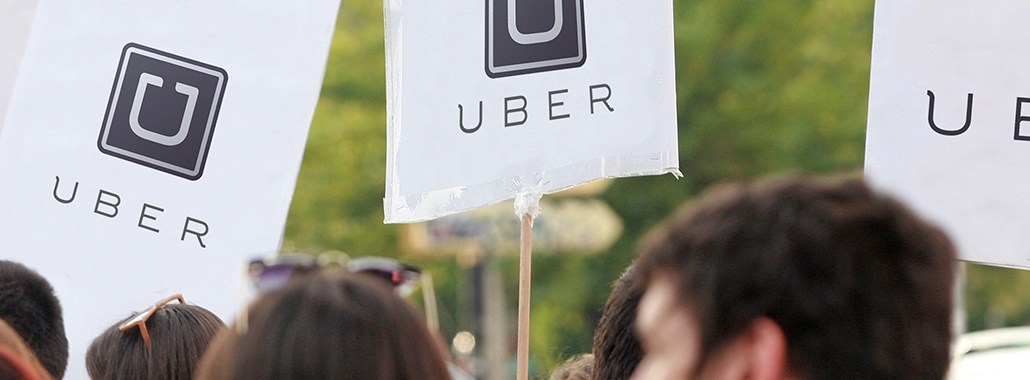
A transportation crackdown is underway in the U.K. A 12-week trial run of new rules expires in December — hanging in the balance is Uber’s fate in London, where it sits in the hands of union bosses, not its consumers.
Transport for London, (TFL, the city’s transportation agency) plans to issue a number of private-taxi regulations that will seriously impact the service Uber riders receive, according to documents leaked by the Telegraph.
Uber, which is no stranger to controversy — including skirmishes with black cabs in London — has hit back by sending out a warning to its registered users and links to sign a petition against the proposed plans. At time of writing, this was approaching 100,000 signatures in under 24 hours.
“Private and confidential” documents showed that in June this year, TFL ran consultations on the private car-for-hire industry, with the goal of proposing a series of new rules for the industry. Of these rules, 25 of them would have implications for Uber’s service, which it argues would make the entire experience much worse.
These regulations include a mandatory waiting time of five minutes before an Uber arrives, regardless whether nearby cars are available sooner. The rules will also clamp down on ride sharing, which will stymie Uber’s plans to introduce UberPool in London at the end of 2015, a new feature that would cut costs for riders as well as congestion for London.

We spoke to London’s entrepreneurs about what this means for the city, its startups and taxi riders.
Mark Peasrson, angel investor and founder of MyVoucherCodes.com (which sold for £55 million in 2014), has more recently launched Fuel Ventures, an early-investor incubator for tech startups. Speaking to Digiday, he suggested that TFL’s proposals do little for consumers.
“The proposals are very specific about making it difficult for Uber; it’s anti-innovation, anti-competition and anti-consumer.”
Although employee rights should be protected, conceded Pearson, innovation shouldn’t be stifled in the process. “We need to probably look at the long-term viability of trade unions if these are the decisions that come out.”
Essentially, he points out, traditional legacy structures are no match for the onward march of consumer demand.
“Uber and other innovative services will win out in the end, and there will be a TFL backlash.”
On Twitter, people were obviously rankled at this seemingly regressive step.


Marco Bertozzi, president, global clients at VivaKi calls it an opportunity for London’s cabs to up their game.
“I thought that Boris [Johnson, Mayor of London] would have more of an eye on innovation and encouraging it,” he said. “I too would support our black-taxi drivers if they were all required to bring themselves into 21st century: Every taxi should be able to be hailed via an App, every taxi must accept cards, every taxi must be competitive and every taxi must be actually on the streets when you need them.”
It’s a question of London being willfully backwards.
“At its heart, you are seeing the city of London sending a message to the tech community that if you have a great tech that improves our lives but happens to disrupt what is an archaic system, then you are not welcome here.”
Chris Holbrook, founder of London startup FreePostcodeLottery.com, says the U.K. government needs to make it easier for other startups to compete with companies like Uber.
“I worry when the government inhibits the market leader rather than support the challengers,” he said. “Legacy systems have until now maintained complete control over the growth of industries. Now, in nine out of 10 cases, change in industry is coming from the startups rather than incumbent companies, and most of these startups, until now, are founded in Silicon Valley.”
Madeline Parra, co-founder of London startup Twizoo, points out the warning message this could send other startups.
“It will cause startups in regulated industries to proceed with more caution. [Uber is] in some sense representing a slew of similar startups, and this case will set precedence.”
Despite this, she thinks London is big enough for the both of them.
“Black cabs definitely know the fastest way through the city in a variety of different traffic scenarios, and Uber drivers can’t match this. Both should capitalize on their strengths in different use cases — both can co-exist, both can have their place.”
More in Marketing

YouTube’s upmarket TV push still runs on mid-funnel DNA
YouTube is balancing wanting to be premium TV, the short-form powerhouse and a creator economy engine all at once.

Digiday ranks the best and worst Super Bowl 2026 ads
Now that the dust has settled, it’s time to reflect on the best and worst commercials from Super Bowl 2026.

In the age of AI content, The Super Bowl felt old-fashioned
The Super Bowl is one of the last places where brands are reminded that cultural likeness is easy but shared experience is earned.






